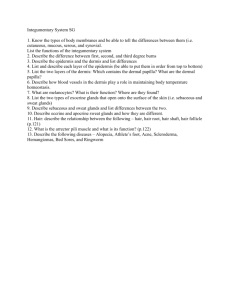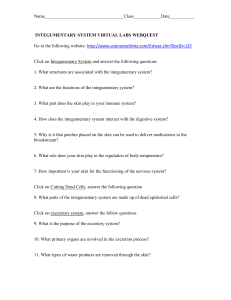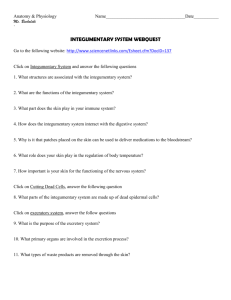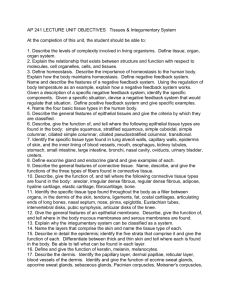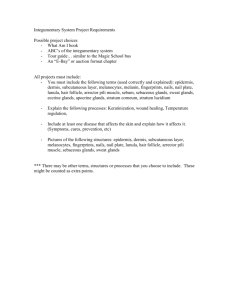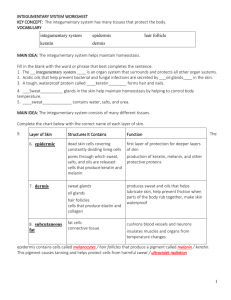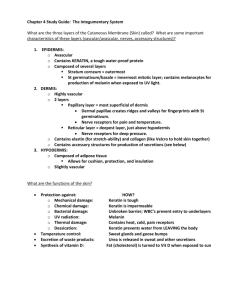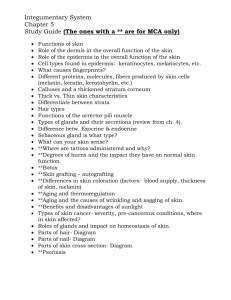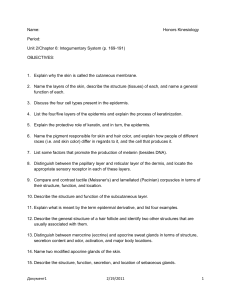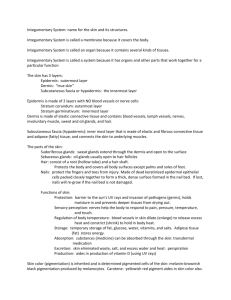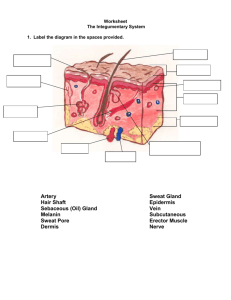Integumentary System
advertisement
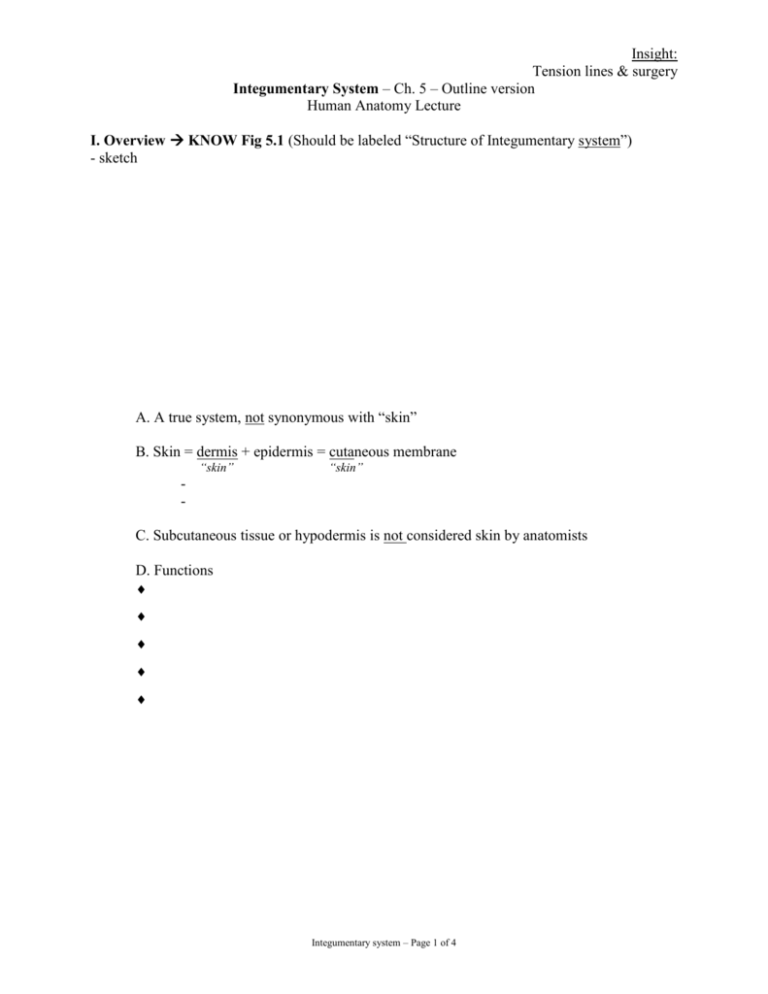
Insight: Tension lines & surgery Integumentary System – Ch. 5 – Outline version Human Anatomy Lecture I. Overview KNOW Fig 5.1 (Should be labeled “Structure of Integumentary system”) - sketch A. A true system, not synonymous with “skin” B. Skin = dermis + epidermis = cutaneous membrane “skin” “skin” C. Subcutaneous tissue or hypodermis is not considered skin by anatomists D. Functions Integumentary system – Page 1 of 4 II. Epidermis KNOW Fig. 5.3 A. stratified squamous epithelium B. folded into friction ridges ( = fingerprints) C. two main cell types (NRF others) 1. keratinocytes ~ 90%, produce keratin “horny” --- 2. melanocytes ~ 8% “black” -- produce melanin -- How many of you are paying to get skin cancer? D. Skin types (remember Rule #2?) note in lab, cf. Fig. 5.3, 5.4, 5.5 “thick” skin “thin” skin Complete chart for details (see text p. 108 for reference): Feature Layers (how many?) Thin skin Location on body Hair Sebaceous glands Sweat glands: relative abundance Integumentary system – Page 2 of 4 Thick skin III. Dermis A. deeper, vascular layer of c.t. 1. papillary region “little nipple” 2. reticular region – “net” --3. abundant nerve endings, glands, blood vessels, hairs IV. Subcutaneous (SubQ) tissue (hypodermis) - not part of skin - superficial fascia to anatomists V. Accessory organs A. hair ( = pilus) Fig. 5.6 & Chapter intro Fig. (p. 107) - B. nails C. Cutaneous glands Fig. 5.3, Know Table 5.3 1. sudoriferous glands: see text for details & complete chart “sweat” Feature Merocrine sweat gland Function Body-wide Distribution & relative number Structure: lumen size & location of duct Integumentary system – Page 3 of 4 Apocrine sweat gland 2. modified sweat glands a. ceruminous glands – “wax” b. 3. sebaceous (oil) glands - secrete sebum VI. Blood supply A. epidermis avascular B. dermis has 2 capillary networks 1. 2. VII. Color A. produced by 3 major pigments 1. melanin 2. hemoglobin 3. carotene B. significant diagnostic value see text p. 114-115 1. cyanosis 2. erythema 3. pallor 4. albinism 5. jaundice 6. hematoma Integumentary system – Page 4 of 4

